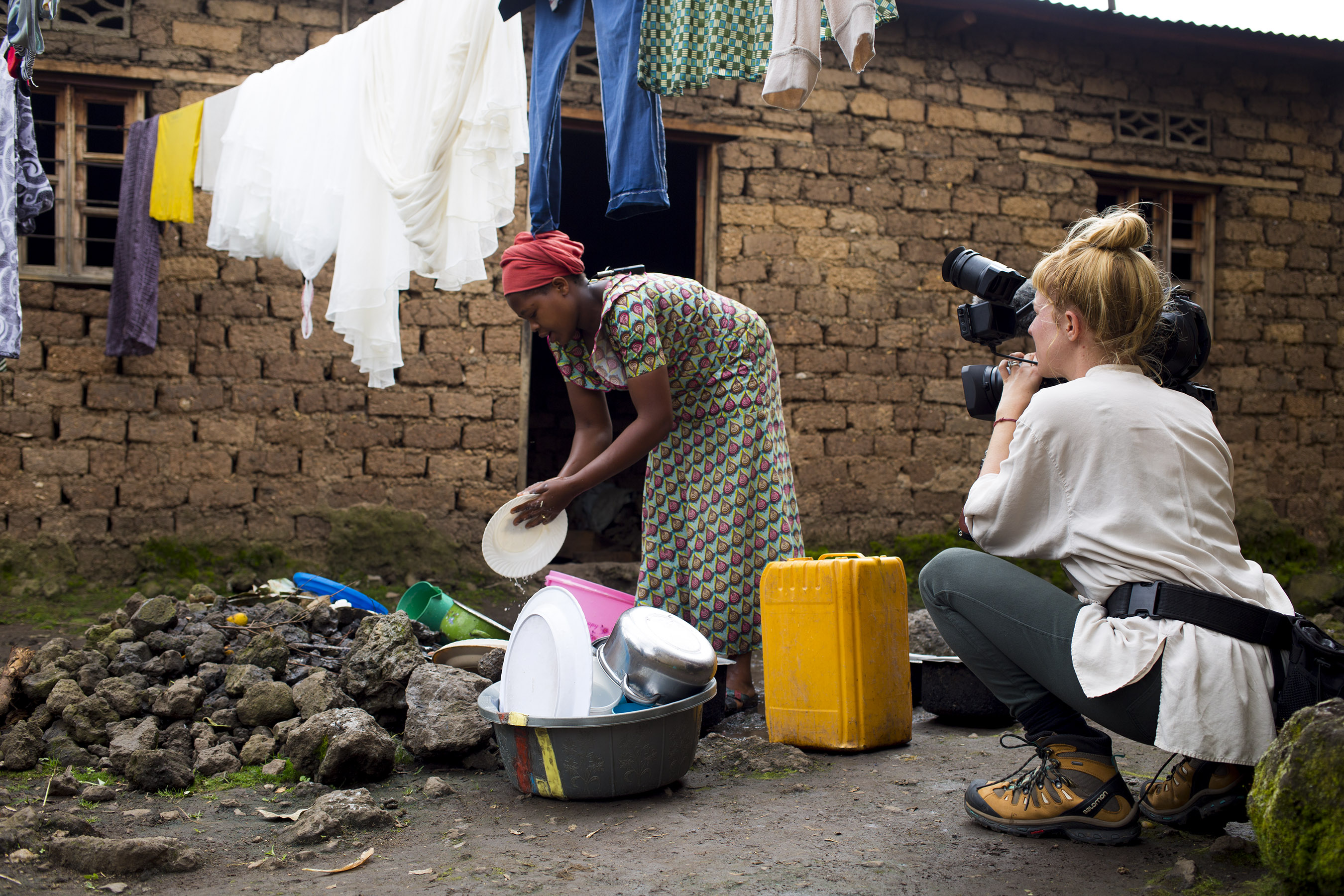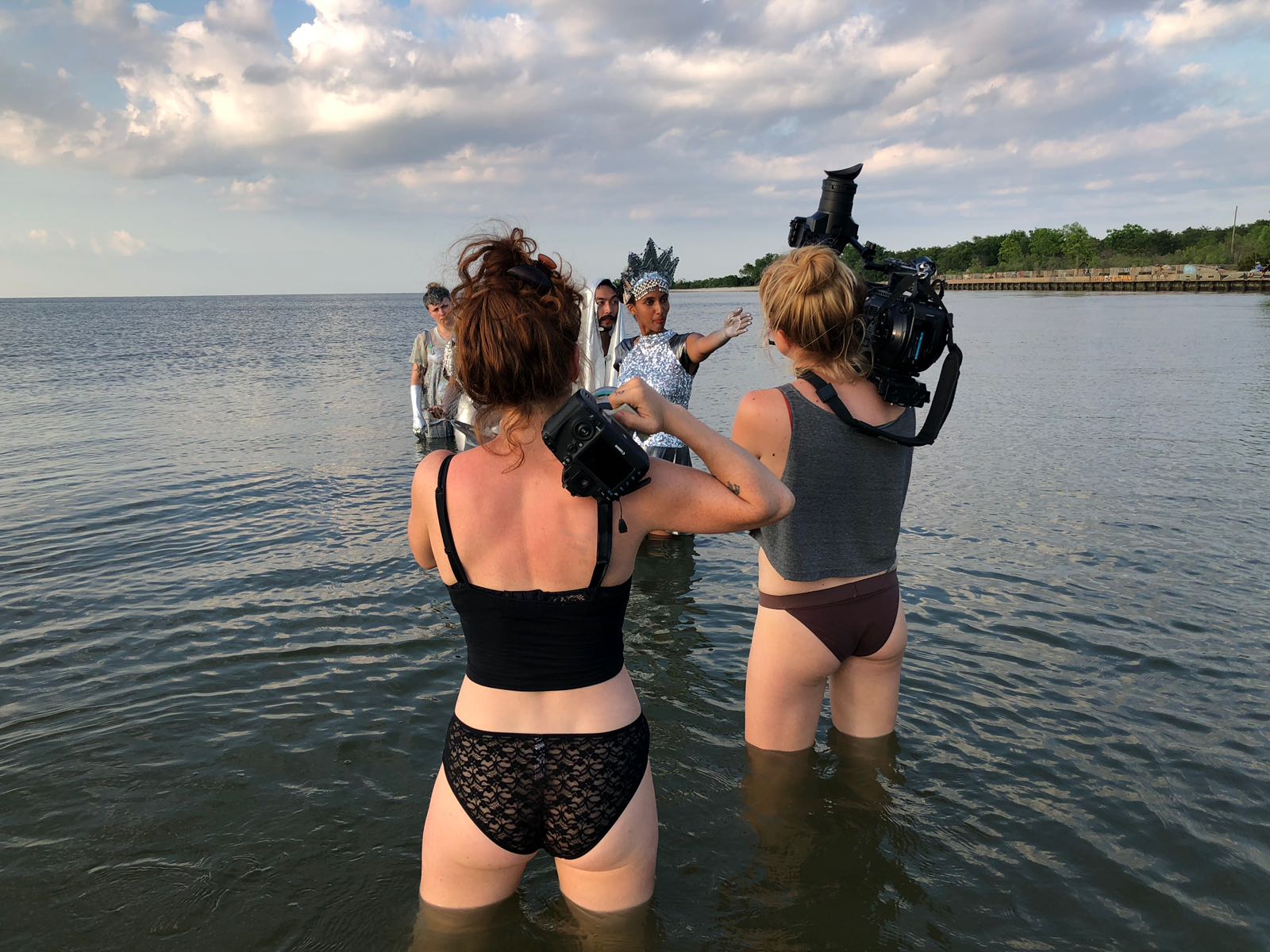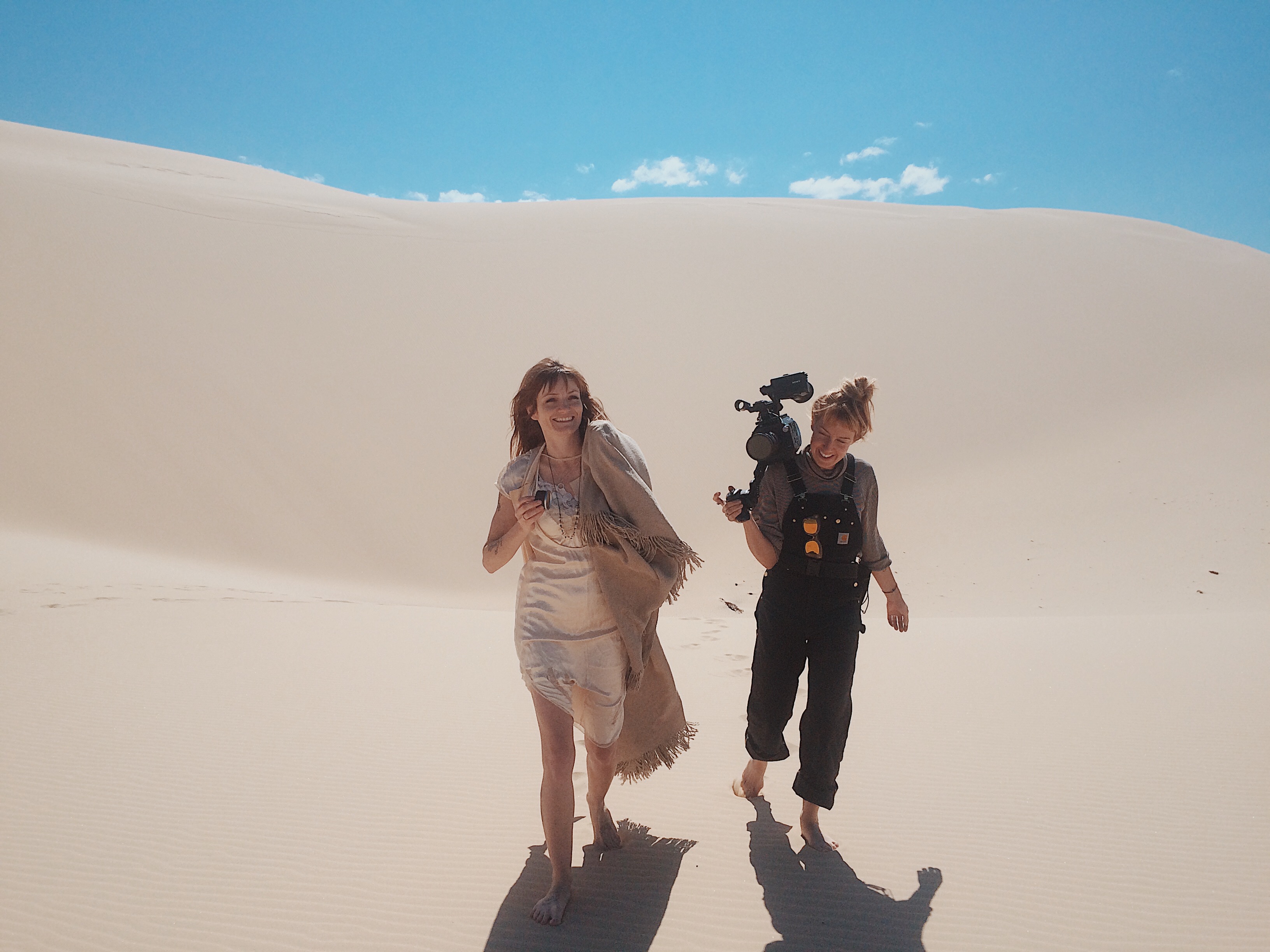In ancient Greek mythology Cassandra was cursed by the god of reason and logic, Apollo, to always speak the truth and never be believed. She represents intuition, and her myth reflects western society’s devaluation of divine feminine knowledge.
The CASSANDRA Project is intended as a space for Cassandras in our community to speak their truth. It’s a space for female-identifying myth-busters to speak out and up for women, LGBTQ, and other marginalized peoples. While there are many columns and blogs that focus on women whose success is defined by the patriarchal values of wealth, power and prestige within the system, this column is dedicated to celebrating women for just being, a political act in and of itself in today’s world. It is a space to share the ways in which female-identifying people have maintained their relationship to the divine feminine forces of intuition and creativity outside the status quo, and in spite of male dominated industries and patriarchal systems.
This column is about, for and dedicated to all of the daughters of the witches you didn’t burn.

At work with Nisa East in Rwanda. (Photo: Jason Whalen)
CASSANDRA #2: Nisa East
Click here to read The CASSANDRA project: Nisa East Part I
Nisa is a filmmaker from Australia living in New Orleans.
Are there community projects you support or are involved with?
The People’s Assembly is an organization I became aware of not long after moving to this city, but only recently started going to their weekly organizing meetings.
They have incredible women (and men!) at the helm and are an inclusive, powerful group of individuals that elevate every single person they come into contact with. I implore anyone who loves this city to become involved or support the work they do, because they’re out their fighting every day for the rights of working class people.
Specifically, I’ve become connected to their work with Gordon Plaza, and if you haven’t heard this story, you must look it up. I knew this city had a dark history but this really blew my mind.
To summarize, the residents of Gordon Plaza were sold homes on a former toxic waste dump. The city of New Orleans allowed developers to build family homes on land that contained 150 kinds of toxic chemicals in the soil.
Imagine buying a home, maybe the proudest day of your life, only to find out you’ve been lied to, and sold a carcinogenic nightmare. Your family, your neighbors, your friends get sick, the children have unexplained rashes all over their bodies, then people begin to be diagnosed with cancer. These families are STILL living in these houses, trapped on land the EPA deemed unfit for human habitation, unable to sell or find the money to move to safety. Many have died.
A few years ago the residents won a class action lawsuit against the city, but the lawyers walked away with almost all of the money and residents got peanuts, nowhere close to what they needed to re-locate.
It’s the ultimate form of state sponsored violence. One of the organizers at People’s Assembly describes it as “the slow lynching.” A death so slow that nobody even notices. I’ve sat down and talked to some of the residents and it is beyond humbling, they’ve watched their neighbors, friends and family die around them for 20 years, but they’ve never stopped fighting. Their path to justice is simple: fully funded re-location.
The city of New Orleans is wholly responsible for this situation, and they have the means to make it right. The city can never bring back lives already lost, but re-locating the 54 remaining households must happen now. It’s not complicated, this is a straightforward solution to right this wrongdoing.
Gordon Plaza relocation will only be addressed by the city when there is enough public outcry that city officials can no longer look the other way. We need everyone on board. Tell everyone you know about it and come say hi and support the movement at the next event. Do it because you love this city and you believe your freedom is bound to the freedom of those around you.

No pants zone filmmaking. (Photo: Riot Mueller)
What are your experiences/thoughts on violence toward women and how do you cope or respond?
Violence towards women can be outward, visible, or it can be subversive to the point you don’t even know you’ve experienced it. There’s a spectrum that I don’t think any woman, regardless of how tough she is, hasn’t experienced.
This subversive violence is something that I’ve been a victim of. Especially in my younger years it was something I brushed off because I thought there were bigger problems for women who were experiencing “real,” tangible, physical violence. I wasn’t going to cry about what happened to me.
It’s only really in the past 12 months that I’ve come to realize this attitude can be harmful because dismissing any kind of violence toward women, or valuing one as greater than another is a dangerous thing. I’ve been guilty of that, and thinking it was coming from a place of strength, when in fact I was leaving other women behind in my wake.
When my stance is “this doesn’t matter because I’m fine,” it does not support all the women who are not fine. I’m in a position of great privilege because I have a network of people around me or a specific financial situation that allows me to brush it off and move on. It’s been really eye opening for me to begin to understand the complex nature of how this quieter violence functions, but it’s made me feel closer to my fellow sisters.
In the past I had this blind ideological vision of feminism. We are all stronger together. Let’s band together and brush off whatever ails us together. But it’s not always that simple.
I was raised to keep moving forward and fight for equality for those around me, but I didn’t understand that there are many complex tethers for every women to reach that same point.
I’m grateful for this feminine led movement that’s taken shape the past 18 months, because it’s made me take pause and reconsider my ideas on what it means to crusade for equality. I’ve sought out these conversations with other women and learned so much in the past year. It’s been important for me to release this idea of hierarchy, that the most important violence is the most visible. That is absurd.

Nisa East with her sister. (Photo: Kristofer Peterson)
What is your best tactic for dealing with mansplaining?
I’m pretty blunt. I usually give them a slap on the ass, put on my Australian accent and say,
“Thanks love, appreciate the input sugar tits.”
What is the source of your creativity? What inspires you? How do you start?
The source of my creativity is the physical world around me. Often my ideas start from a location. Much of what’s in my head becomes clearer at a moment when I’m affected by a place. It’s different places all the time, maybe a particular street I happen to be walking down at dusk after it has rained, or a point under a bridge I stop on my bicycle, or even sometimes my backyard. The crystallising moment for a big idea in my head is almost always formed by a physical space I enter, it enters from the outside in.
I nearly always begin my film ideas with locations. Characters are born from locations and then stories are born from character.
What are queer/feminist topics that you explore in your creative work?
The script I’m currently working on (and actually most of my work) explores varying forms of masculinity, from a feminine viewpoint.
I think it comes from my interest in the masculine tendencies in myself, This ‘toughness’ I described. When I was a teenager I was told I had higher levels of testosterone, the physical implications weren’t super serious, but the way it affected my young psyche was really interesting. At first I hated the idea, but I eventually entertained it in a way that started to influence the way I perceived myself, the way I held myself. I associated testosterone with certain behaviors, I think it gave me license to act or think a certain way. It was subtle, but looking back it definitely had an effect on who I thought I was.
Masculinity and the kinds of power it wields is something I’ve always loved dissecting. Usually through male archetypes, and seeing what happens when you scratch beneath the surface and find the cracks in the veneer.
An exterior that is self-assured and confidant, what happens when you get beneath the façade? To me this whole idea of masculinity is a shield, I find myself wearing it sometimes in various forms, but I also look for the weak spots in the shield.
In the past I’ve developed many of these characters with my husband. He’s pretty masc, but lets his guard down in many ways, not just in front of me. Sometimes he will play the characters (he’s a great actor), and the narrative is always a man talking about men to men. I can be pretty disarming in that scenario because I can be pretty blunt, but I do it with humor.
The most recent script is more serious because the seed of it is really scary.
What is the new project about?
The script I’m working on explores young adolescent male sexuality, power and possession through an early summer bug infestation. I’m looking at these scenes through a lens of entomology and using the insect world as a proxy for film about violence against women. I went into some deep wormholes reading about the sexual proclivities of bugs, and the different evolutionary battles between males & females of species. They are amazing creatures, and they’re sexy and really easy to anthropomorphize.
So the seed of this story came from the “incel” movement. Incel is a group of young, angry disillusioned men on the internet who identify as “involuntarily celibate”, they hate women, blame them for all of their adversity, and incite very real violence against women. They are the terrifying culmination of a generation of young men raised ostracized and alone.
It’s not that these men are not culpable for their actions – BUT I do believe our society has created these young men, and we are ultimately responsible for them. It’s really heavy.
How does a young mind like that form into something that is so full of hate at an age that should be full of desire? Your adolescence should be a time of big new feelings and hormones and sexual attraction. It is a time that is really confusing and a bit alienating and weird, but it should be a joyous time you look back on. You have crushes and figure out who you are attracted to. For me, this new film is about getting to the origin of how something like this can get so wrong.
What do you do when you go through creative dryness… how do you get back in it?
Bash my head against a wall until it comes back.
No it’s pretty straightforward. I try and engage in creative mediums that aren’t my own. I’ll try and draw, or go to the theatre or a gallery. Learn something new.
 NOLAbeings
Multimedia artist Claire Bangser created NOLAbeings as a portrait-based story project that marries...
NOLAbeings
Multimedia artist Claire Bangser created NOLAbeings as a portrait-based story project that marries...
 Data corner: Adobe Suite (create a PDF, social media graphic, presentation, edit a photo and video
Data corner is where you go to work with analytics and top tech skills. It takes on everything from PERL and SQL to Canva and Sprout Social.
Data corner: Adobe Suite (create a PDF, social media graphic, presentation, edit a photo and video
Data corner is where you go to work with analytics and top tech skills. It takes on everything from PERL and SQL to Canva and Sprout Social.
